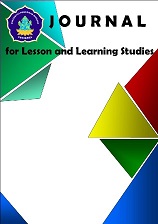The Interconnected Influence of Internal Factors on Physical Education, Sports, and Health Learning Outcomes
DOI:
https://doi.org/10.23887/jlls.v7i3.84471Kata Kunci:
Physical Fitness, Breakfast Habits, Self-Confidence, Learning OutcomesAbstrak
The primary issue addressed in this study is the low academic performance in Physical Education, Sports, and Health (PJOK) among students, influenced by various internal factors, such as physical fitness, breakfast habits, and self-confidence. This research aims to examine the effects of physical fitness, breakfast habits, and self-confidence on PJOK learning outcomes. The study employed a quantitative method with a path analysis approach. The sample was selected using Simple Random Sampling from a population of 176 students, resulting in 60 students as participants. Data were collected using the National Student Fitness Test (TKPN) to assess physical fitness, a food recall questionnaire for breakfast habits, a self-confidence questionnaire, and report card scores for learning outcomes. The findings reveal that physical fitness has a significant direct effect on PJOK learning outcomes, contributing 18.92%. Breakfast habits also have a significant direct effect, contributing 0.27%. Self-confidence contributes a direct effect of 31.08%. Additionally, there is an indirect effect of physical fitness on learning outcomes through self-confidence, contributing 88.6%, and an indirect effect of breakfast habits on learning outcomes through self-confidence, contributing 0.68%. Collectively, physical fitness, breakfast habits, and self-confidence contribute a total of 82.70% to PJOK learning outcomes. The conclusion of this study emphasizes that these three variables play a vital role in improving students' PJOK learning outcomes, both directly and indirectly through enhanced self-confidence.
Diterbitkan
Cara Mengutip
Terbitan
Bagian
Lisensi
Hak Cipta (c) 2024 Wilda Welis, Amelia Gusfiani, Anton Komaini, Zulbahri, Rully Effendi

Artikel ini berlisensiCreative Commons Attribution-ShareAlike 4.0 International License.
Authors who publish with the Journal for Lesson and Learning Studies agree to the following terms:
- Authors retain copyright and grant the journal the right of first publication with the work simultaneously licensed under a Creative Commons Attribution License (CC BY-SA 4.0) that allows others to share the work with an acknowledgment of the work's authorship and initial publication in this journal.
- Authors are able to enter into separate, additional contractual arrangements for the non-exclusive distribution of the journal's published version of the work (e.g., post it to an institutional repository or publish it in a book), with an acknowledgment of its initial publication in this journal.
- Authors are permitted and encouraged to post their work online (e.g., in institutional repositories or on their website) prior to and during the submission process, as it can lead to productive exchanges, as well as earlier and greater citation of published work. (See The Effect of Open Access)




